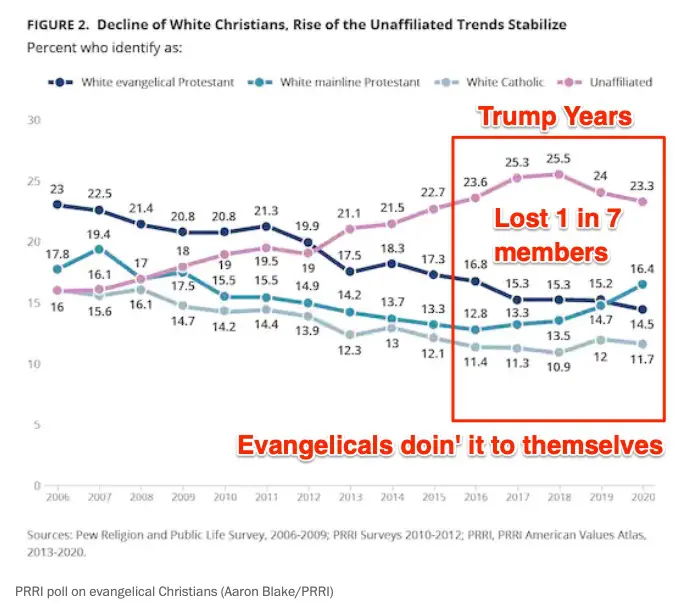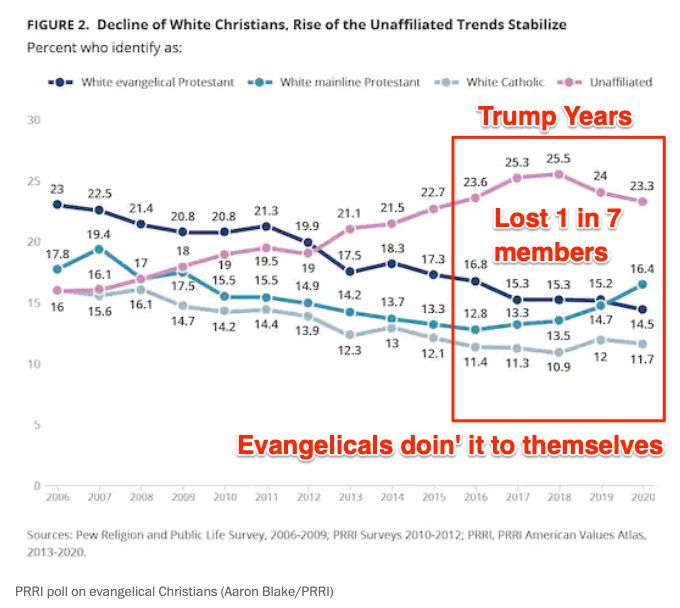Elder wisdom, Thinkers, and Creators Since Antiquity
Some say there’s nothing new under the sun. Maybe we don’t need to go that far — but we should definitely appreciate the voluminous contributions of the ancient thinkers and great philosophers of antiquity, who figured out a dizzying array of complicated concepts long before the modern era.
We have much to learn from our ancestral teachers. Here’s a place to start — which shall grow over time as the knowledge is passed down yet again, age unto age. Things that stand the test of time are valuable, no matter what the currency of the day.
The Great Philosophers
| Name | Known for | Born | Died | Where lived | Influenced |
|---|---|---|---|---|---|
| St. Thomas Aquinas | Summa Theologiae | 1225 | 1274 | Italy | |
| Anaxagoras | Early Pre-Socratic Greek philosopher who moved forward ideas about the nature of existence | c. 500 BC | c. 428 BC | Greece, Persia | Diogenes, Plutarch |
| Hannah Arendt | A politically progressive Jewish philosopher, Arendt fled the Nazi regime for America, where she wrote the foundational text on the political psychology of authoritarianism, "The Origins of Totalitarianism" (1951) | 1906 | 1975 | Germany, America | |
| Aristotle | Student of Plato and founder of the Lyceum, he is widely known for his Socratic Method of questioning as a basis for philosophical discussion | 384 BC | 322 BC | Greece | The Enlightenment, St. Thomas Aquinas, Dante |
| Marcus Aurelius | Roman emperor and Stoic philosopher who advocated for cultivating an ethos of impermanence and doing one's duty. | 121 | 180 | Roman Empire | |
| Avicenna | Persian polymath, father of early medicine, and a key figure during the Islamic Golden Age | 980 | 1037 | Persia | |
| Francis Bacon | declaring that human intellect and reason are means of discovering the truth: "Knowledge is power“ | 1561 | 1626 | England | |
| Roger Bacon | Most celebrated European scientist of the Middle Ages. | 1220 | 1292 | England | |
| Pierre Bourdieu | The French sociologist's work focuses on how upper social classes preserve their social privileges through generations despite the persistent myth of social mobility in post-industrial liberal societies | 1930 | 2002 | France | |
| Jeremy Bentham | father of Utilitarianism | 1748 | 1832 | England | |
| Daniel Bernoulli | Swiss mathematician widely credited for pioneering the field of statistics | 1700 | 1782 | Switzerland | |
| Jacob Bernoulli | 1655 | 1705 | Switzerland | ||
| Jean Boudin | French political philosopher known for his theory of sovereignty | 1530 | 1596 | France | |
| Louis Braille | French educator and inventor of the Braille system of reading and writing for the blind | 1809 | 1852 | France | |
| Brunelleschi | Italian architect, sculptor, and designer | 1377 | 1446 | Italy | |
| Joseph Campbell | Literature professor most known for his work in world mythologies, and the widely observed narrative of the archetypal hero | 1904 | 1987 | White Plains, NY | George Lucas and Star Wars |
| Andrew Carnegie | Gilded Age tycoon who made a fortune leading the steel industry in the late 19th century, becoming one of the richest Americans in history | 1835 | 1919 | Scotland, America | |
| Cicero | Roman statesman, orator, philosopher, scholar, lawyer, and skeptic who championed a return to republican government during the dictatorship of Julius Caesar. | 106 BC | 43 BC | Rome | John Locke, David Hume, Motesquieu, Edmund Burke |
| Marquis de Condorcet | French philosopher, mathematician, and early political scientist who played a key role in transforming European society from feudalism to modern secular democracy. | 1743 | 1794 | France | Thomas Jefferson |
| Confucius | Confucianism -- a system of ethics and morals to guide "right" behavior | 551 BC | 479 BC | China | |
| Marie Curie | Chemist and physicist whose work on radioactivity earned her a Nobel Prize -- the first woman ever to win the award. | 1867 | 1934 | Poland, France | |
| Leonardo da Vinci | The Italian polymath, painter, engineer, inventor, scientist et al was a giant of the Renaissance. He is often credited as being the greatest painter in th history of art. | 1452 | 1519 | Italy | |
| Charles Darwin | English naturalist most famous for the knowledge of evolution | 1809 | 1882 | England | |
| Democritus | basic theory of the atom: a fundamental building block unit of all things that itself is not divisible (although later we would discover even smaller particles, the atom is still essentially the most basic building block) | 460 BC | 371 BC | Greece | |
| René Descartes | cogito ergo sum: I think therefore I am | 1596 | 1650 | France | |
| Alexis de Tocqueville | French diplomat, philosopher, historian, and aristocrat best known for his two volume Democracy in America (1835 & 1840), now considered one of the earliest works of sociology. | 1805 | 1859 | France | |
| Diogenes | The most famous of the Cynics, a school of philosophy founded in Athens c. 400 BC, advocating the pursuit of happiness through avoiding the unnecessary temptations of material goods | 412 BC | 323 BC | Greece | Zeno |
| Emilé Durkheim | anomie — concept of lack of a shared moral order. Normlessness. | 1858 | 1917 | France | |
| Albert Einstein | Known for his theories of relativity and quantum mechanics, Einstein is widely agreed to be one of the greatest physicist of all time. | 1879 | 1955 | Germany, America | |
| Ralph Waldo Emerson | Writer, philosopher, poet, and abolitionist who led the transcendentalist movement of the mid-19th century and became a key figure in the American romantic movement | 1803 | 1882 | America | Henry David Thoreau |
| Empedocles | Greek philosopher best known for his cosmogonic theory of the four classical elements. | 494 BC | 434 BC | Greece | |
| Epicurus | Greek philosopher and founder of the highly influential school of philosophy bearing his name, Epicureanism | 341 BC | 270 BC | Greece | John Locke, Thomas Jefferson, Jeremy Bentham, Karl Marx |
| Erasmus | A Dutch philosopher and Catholic theologian, Erasmus is acknowledged as one of the greatest minds of the northern Renaissance | 1466 | 1536 | Netherlands | |
| Euclid | Greek mathematician and founder of geometry | c. 325 BC | c. 270 BC | Alexandria, Egypt | |
| Michael Faraday | Hugely influential English scientist who made numerous contributions to the study of electromagnetism and electrochemistry | 1791 | 1867 | England | |
| Enrico Fermi | Italian physicist who emigrated to America with his Jewish wife in 1938 and worked on the Manhattan Project, creating the world's first nuclear reactor and becoming dubbed the "architect of the atomic bomb." | 1901 | 1954 | Italy, America | |
| Michel Foucault | Widely influential philosopher, literary critic, historian, and activist best known for his theories on the relationship between power and knowledge. | 1926 | 1984 | France | |
| Sigmund Freud | Austrian neurologist who founded psychoanalysis | 1856 | 1939 | Austria, UK | |
| John Kenneth Galbraith | Concept of countervailing power — that collective worker power is needed to balance against growing corporatism in the economy | 1908 | 2006 | Canada, America | |
| Galen | Greek physician, surgeon, and philosopher credited with developing the fields of anatomy, physiology, pathology, pharmacology, neurology, and logic | 130 | 200 | Greece, Rome | |
| Galileo | The Italian polymath is considered the father of modern science, making groundbreaking contributions to the fields of modern physics, observational astronomy, and the scientific method itself. | 1564 | 1642 | Italy | |
| Siddharta Gautama | The Buddha; achieving enlightenment under the Bodhi tree in India | 563 BC | 483 BC | India | |
| Ghiberti | Sculptor most famous for his creation of the bronze doors of the Florence Baptistry | 1378 | 1455 | Italy | |
| Johann Gutenberg | Invented the printing press, democratizing the dissemination of information for the first time. | 1394 | 1468 | Germany | |
| Jürgen Habermas | German philosopher and member of the Frankfurt School, his work addresses public opinion and the public sphere through the lens of critical theory | 1929 | Germany | ||
| Friedrich Hegel | One of the most important figures in German idealism and a founding figure in Western philosophy | 1770 | 1831 | Germany | |
| Martin Heidigger | German philosopher and member of the Nazi Party | 1889 | 1976 | Germany | |
| Heraclitus | posited that change or flow is the most basic character of nature; that the world is characterized by opposites; and that God or "logos" is the essence of nature's constant flux and source of all things | 535 BC | 475 BC | Greece | |
| Herodotus | first historian; first journalist; first foreign correspondent | 480 BC | 425 BC | Greece | |
| Hippocrates | Greek physician who is considered the Father of Medicine and known for the Hippocratic oath still in use today | c. 460 BC | c. 370 BC | Greece | |
| Thomas Hobbes | English philosopher and founder of modern political philosophy | 1588 | 1679 | England | |
| Homer | Ancient Greek poet and author of the epic poems the Iliad and the Odyssey | c. 750 BC | Greece | ||
| David Hume | Key Enlightenment philosopher who championed empiricism, skepticism, and naturalism | 1711 | 1776 | Scotland | |
| William James | The father of American psychology | 1842 | 1910 | America | |
| Thomas Jefferson | Founding Father and third president of the U.S., Jefferson wrote the Declaration of Independence | 1743 | 1826 | America | |
| Carl Jung | Founder of analytical psychology | 1875 | 1961 | Switzerland | |
| Immanuel Kant | A central Enlightenment thinker who made contributions to epistemology, metaphysics, ethics, and aesthetics among other fields. | 1724 | 1804 | Prussia | |
| John Maynard Keynes | English economist whose ideas profoundly changed the field of macroeconomics and economic policy, now known as Keynesian economics | 1883 | 1946 | England | |
| Søren Kierkegaard | Danish poet and polymath regarded as the first existentialist philosopher | 1813 | 1855 | Denmark | |
| Thomas Kuhn | Philosopher of science known for his theory of scientific paradigms and paradigm shifts | 1922 | 1996 | America | |
| Lao Tzu | the Dao de Ching and philosophy of Daoism | 6th c. BC | 6th c. BC | China | |
| Lamark | A botanist, naturalist, and taxonomist, the French academic was an early proponent of the idea of evolution | 1744 | 1829 | France | |
| Gottfried Liebniz | The German polymath is a key figure in the history of philosophy and mathematics both | 1646 | 1716 | Prussia | |
| Vladimir Lenin | Fomented the Russian Revolution of 1917 that overthrew the tsarist regime | 1870 | 1924 | Russia | Joseph Stalin |
| Carolus Linnaeus | The father of modern taxonomy and inventor of binomial nomenclature for the modern system of naming organisms | 1707 | 1778 | Sweden | |
| John Locke | philosophy of liberty and natural rights | 1632 | 1704 | England | |
| Martin Luther | Kicked off the Protestant Reformation when he broke with the Catholic Church over the practice of indulgences | 1483 | 1546 | Germany | |
| James Madison | Founding Father and fourth president of the U.S., Madison is known as the father of the Constitution and the author of the Bill of Rights, as well as a co-author of the Federalist Papers with Alexander Hamilton and John Jay | 1751 | 1836 | America | |
| Karl Marx | His political theories were so revolutionary he lived in exile much of his life, with his works The Communist Manifesto and Das Kapital exerting enormous influence on subsequent intellectual thought and world history | 1818 | 1883 | Germany, England | |
| John Stuart Mill | A key thinker in the pantheon of classical liberalism, Mill contributed to political theory, political economy, and social theory among others | 1806 | 1873 | England | |
| Mozi | An ethical philosophy advocating the caring for everyone equally | 470 BC | 391 BC | China | Legalism |
| Mohammad | Arab social and political leader who founded the religion of Islam | 570 | 632 | Mecca | |
| Isaac Newton | One of the greatest scientists of all time, Newton discovered gravity and the laws of motion among much else | 1642 | 1727 | England | |
| Friedrich Nietzsche | Key figure in modern intellectual history | 1844 | 1900 | Germany | |
| Alfred Nobel | Inventor and philanthropist who gave his fortune to establish the Nobel Prize | 1833 | 1896 | Sweden | |
| Georgia O'Keeffe | Painter known as the Mother of American modernism | 1887 | 1986 | America | |
| Thomas Paine | Political theorist and revolutionary whose pamphlets Common Sense and The American Crisis helped persuade the colonists to declare independence from Great Britain | 1737 | 1809 | Britain; America | |
| Parmenides | early Rationalist; believed our perceptions are an illusion shielding us from true reality, which is only discernable via human reason | 515 BC | 445 BC | Greece | Plato |
| Louis Pasteur | A French chemist and microbiologist who discovered vaccination and pasteurization, Pasteur is considered the father of bacteriology and the father of microbiology | 1822 | 1895 | France | |
| Petrarch | Petrarch's rediscovery of Cicero's letters helped spark the Italian Renaissance in the 14th century | 1304 | 1374 | Italy | |
| Philo of Alexandria | Philosopher and theologist who entwined Jewish exegesis and Stoic philosophy | c. 20 BC | c. 50 AD | Alexandria, Egypt | |
| Plato | Platonic Forms | 427 BC | 347 BC | Greece | Aristotle |
| Pliny the Elder | Author, naturalist, and navy commander who wrote encyclopedic works on natural philosophy | 23 | 79 | Rome | |
| Marco Polo | The first European to create a detailed history of his voyage to Asia via the Silk Road, including China, Japan, Persia, India, Sri Lanka, and Vietnam. | 1254 | 1324 | Italy | |
| Neil Postman | The professor and cultural critic warned against the ill effects of tchnology and is best known for his book Amusing Ourselves to Death (1985) | 1931 | 2003 | America | |
| Protagoras | Father of relativism; coined the phrase "man is the measure of all things" | 490 BC | 420 BC | Greece | |
| Pythagoras | The Pythagorean theorem | 570 BC | 495 BC | Greece | Parmenides |
| François Rabelais | A writer, physician, Greek scholar, Renaissance thinker, Rabelais is infamous for his satirical and bawdy humor | 1483 | 1553 | France | |
| John Rawls | Moral and political philosopher known for the thought experiment known as the "veil of ignorance," in which participants make decisions about the society they will live in without knowing a priori which class or social position they themselves would occupy. | 1921 | 2002 | American | |
| Jean-Jacques Rousseau | Political philosopher whose concept of the Social Contract inspired the French and American Revolutions, and underpins all modern liberal democracies | 1712 | 1778 | France | The Enlightenment, French Revolution |
| Jean-Paul Sartre | A key thinker in the philosophy of existentialism | 1905 | 1980 | France | |
| Arthur Schopenhauer | The German philosopher was one of the first in the west to embrace Indian philosophy, including asceticism, self-denial, and the concept of worldly illusion. He influenced many other important thinkers and creators of the 19th and 20th centuries | 1788 | 1860 | Poland | Ludwig Wittgenstein, Albert Einstein, Sigmund Freud, Carl Jung, Leo Tolstoy, Herman Melville, Thomas Mann, Hermann Hesse, Jorge Luis Borges, Samuel Beckett, Richard Wagner, Arnold Schoenberg, Gustav Mahler |
| Joseph Schumpeter | An Austrian emigree to the US, Schumpeter taught at Harvard and popularized the economic term "creative destruction" | 1883 | 1950 | Hungary, United States | |
| Seneca | Rhetoric teacher and Stoic philosopher | 55 BC | 37 AD | Roman Empire | |
| Adam Smith | This Scottish philosopher was a pioneer of political economy, and is widely regarded as the father of economics and the father of capitalism. | 1723 | 1790 | Scotland | David Hume |
| Socrates | Widely considered a founder of philosophy; the dialectic method, among much else | 469 BC | 399 BC | Greece | Plato |
| Spinoza | An early Enlightenment thinker inspired by Descartes to go on to lead the Dutch Golden Age | 1632 | 1677 | The Netherlands | |
| Nicholas Nassim Taleb | The author, mathematical statistician, and former options trader has written several influential books on probability, uncertainty, and randomness. | 1960 | Lebanon, America | ||
| Thales | Posited water as being the basic material of the cosmos | 624 BC | 546 BC | Miletus, Greece | |
| Theocritus | Creator of ancient Greek pastoral poetry | c. 300 BC | c. 260 BC | Greece | |
| Thucydides | Athenian historian and general who wrote the History of the Peloponnesian War about the conflict between Sparta and Athens | 460 BC | 400 BC | Greece | |
| Edward Tufte | Professor of computer science at Yale and a pioneer in the field of data visualization | 1942 | America | ||
| Virgil | Regarded as one of Rome's greatest poets, Virgil penned the Aeneid, the national epic of ancient Rome | 70 BC | 19 BC | Rome | Dante and the Divine Comedy |
| Vitruvius | Roman author, architect, and army engineer known for his significant contributions to architecture and design | c. 80 BC | c. 15 BC | Rome | The Vitruvian Man by Leonardo da Vinci |
| Voltaire | Key figure in the Enlightenment, Voltaire was famous for his criticism of the Catholic Church and advocacy of civil liberties including freedom of speech, freedom of religion, and the separation of church and state | 1694 | 1778 | France | Jean-Jacques Rousseau |
| James Watson | Credited with discovering the double helix structure of the DNA molecule | 1928 | America | ||
| Max Weber | German historian and political economist widely regarded as one of the most important theorists of modern Western society | 1864 | 1920 | Germany | Critical theory, the Frankfurt School |
| Ludwig Wittgenstein | Considered one of the greatest modern philosophers, Wittgenstein made significant contributions to the philosophy of mathematics, the philosophy of language, and the philosophy of mind. | 1889 | 1951 | Austria, England | |
| Zeno | Founder of the Stoic school of philosophy in 4th c. BCE Greece and Parmenides's most famous student. | c. 495 BC | c. 430 BC | Greece | Socrates, Plato, Aristotle, Diogenes |








